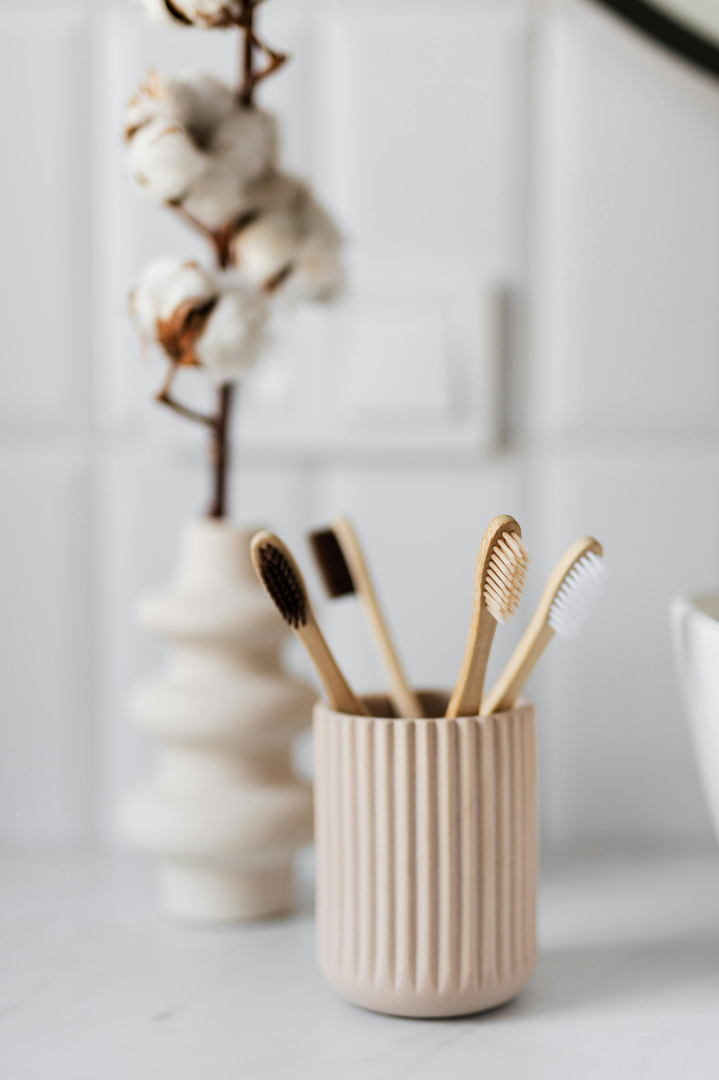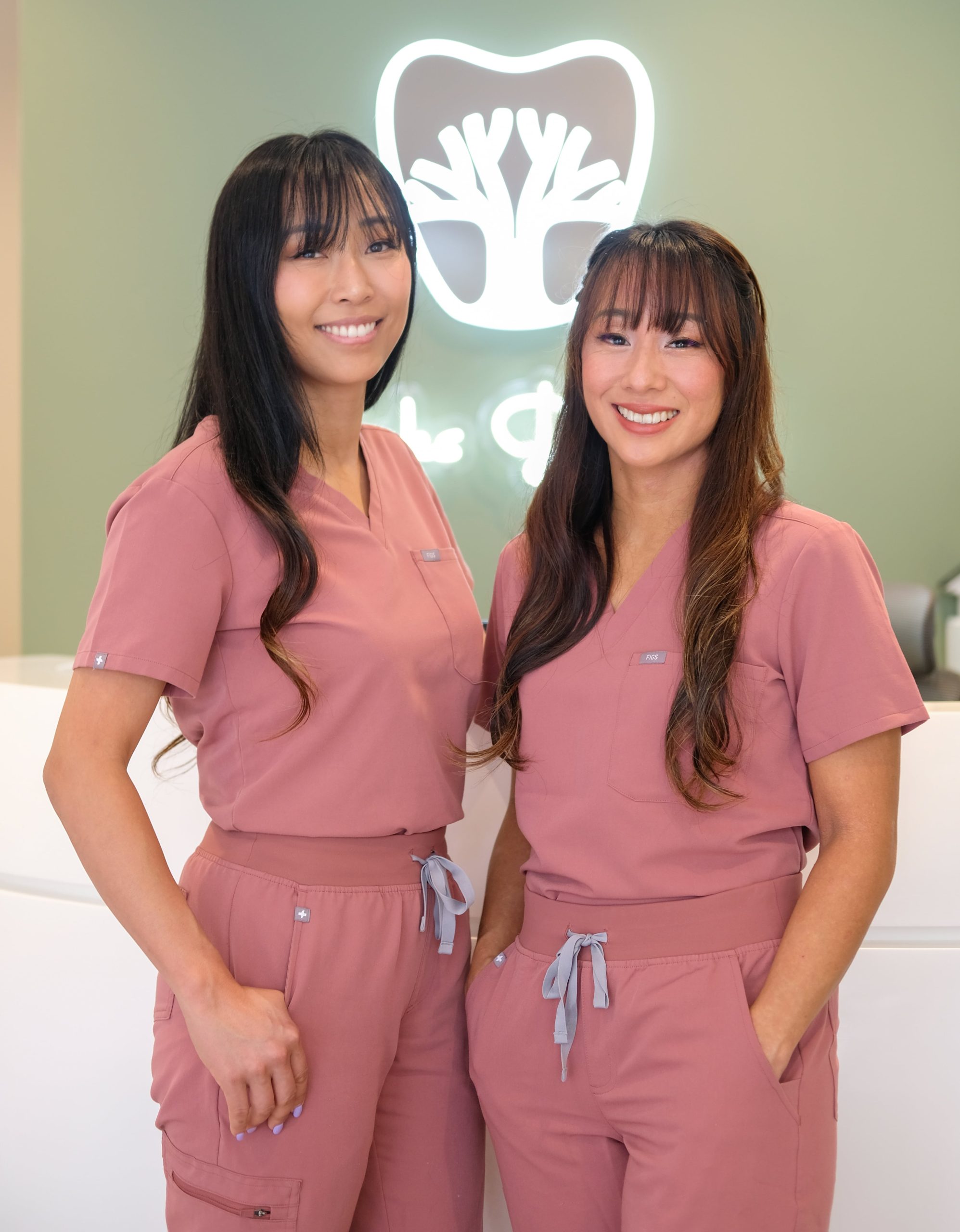NEUTRAL BAY | GENERAL & PREVENTATIVE DENTISTRY
Check-Up & Clean
Keep your smile happy and healthy with regular care.
Routine dental check-ups are more than just a quick polish. They are a vital part of protecting your teeth and detecting any issues early—before they require more extensive treatment.
How often do I need a dental check-up and clean?
We recommend regular visits every six months to keep your teeth clean, your gums healthy, and your overall oral health in top shape. The benefits of regular dental check-ups:
- Detect issues early — before they become painful or expensive
- Maintain clean, healthy gums and teeth
- Prevent cavities and enamel erosion
- Get expert honest & practical advice to improve your oral care routine
- Understand all the options available to you
- Enjoy the peace of mind that comes from consistent care

More than just a clean — Your full oral health check
1. Comprehensive Oral Examination
A thorough assessment of your teeth, gums, and soft tissues, including an airway and jaw screen. This allows us to catch potential problems like cavities, gum disease, signs of oral cancer, temporo-mandibular disorder or sleep disordered breathing in their earliest stages.
2. Intra-oral X-rays
Digital and minimal-dose X-rays that allow us to detect early signs of decay between the teeth and monitor bone levels. These x-rays are also known as Bitewing x-rays.
3. Intraoral Scan
A 3D digital scan of your teeth and bite for more accurate records and treatment planning—no messy impressions required.
4. Extra-oral X-ray
A full 2D jaw X-ray that captures the entire mouth in one image, including the jaw, wisdom teeth, sinuses, and TMJ, helping us identify issues that may not be visible during a visual exam. This x-ray is also known as an OPG or Orthopantomogram.
5. Professional Scale and Clean
Meticulous removal of hardened calculus from all surfaces of your teeth, especially in areas that are difficult to reach with brushing alone.
6. Polishing
Teeth are polished using our specialised fine air and water polisher to remove surface stains and to give an extra smooth finish without damaging dental enamel.
7. Fluoride Treatment
A fast-drying fluoride varnish is applied to the teeth, which helps to strengthen tooth enamel, prevent cavities and reduce tooth sensitivity. Our unique swipe-on procedure is easier and safer to use than gels and rinses, done in less than a minute. We even offer a variety of flavours! We also can offer fluoride-free alternatives.
8. Personalised Oral Health Advice
Practical tips tailored to your needs, including brushing techniques, flossing habits, and dietary guidance.
9. Curated Oral Hygiene Kit
Select product samples based on individualised advice given at your visit to help you maintain your smile at home
10. Comprehensive Treatment Plan
A personalised discussion where we outline any issues requiring further care. We work with you to create a treatment plan tailored to your needs, goals, budget and lifestyle.


Frequently Asked Questions
Are dental cleans painful?
Dental cleans are generally not considered painful. However, people with sensitive teeth or gums may experience some discomfort — especially if it has been a while since their last clean. We can apply our strong numbing gel, or for extra sensitive areas, use local anaesthesia, to ensure a comfortable and relaxing clean.
Will my teeth feel sensitive after a clean?
Some people experience mild sensitivity for a day or two, especially if a lot of build-up was removed or if they’re prone to cold sensitivity. This usually settles quickly. We may recommend using sensitive toothpaste or a gum-friendly mouthwash for extra comfort.
Can I eat or drink after a dental clean?
Yes—but if you’ve had a fluoride treatment, wait 30 minutes before eating or drinking. It’s also best to avoid very hot, cold, or staining foods (like wine, tea, or coffee) right after your clean.
Is a check-up and clean covered by private health insurance?
Yes—if you have dental extras cover, your check-up and clean may be partially or fully covered. We can check your rebate on the spot for you.
How often do I need to get dental x-rays?
We generally recommend intraoral x-rays (taken inside the mouth) every 2 years, and extraoral x-rays (OPGs) every 3–5 years for adults. Some treatments—like braces, root canals, or dental injuries—may require more frequent x-rays for monitoring.
Are there fluoride-free alternatives?
Yes! While we normally apply a fluoride varnish after your clean, we also offer a fluoride-free alternative made from calcium and milk protein. Just let us know your preference at your appointment.
How much radiation is emitted from dental x-rays?
Dental x-rays emit very low radiation—similar to a short flight, a day outside, or even eating a few bananas—and modern digital x-rays use up to 80% less radiation than traditional ones, targeting only a small area and taken only when necessary.
Why do I need a clean if I brush and floss daily?
Even with regular brushing, some build-up stays behind, especially under the gums. Once this build-up hardens, it can irritate the gums and make them bleed. Only a professional clean will remove the hardened calculus. We recommend regular cleans every six months to keep your gums healthy.
Why do my gums bleed when I brush, and during or after a clean?
Bleeding gums are usually a sign of inflammation caused by plaque or hardened build-up. With regular brushing, flossing, and professional cleans, this should improve over time.
